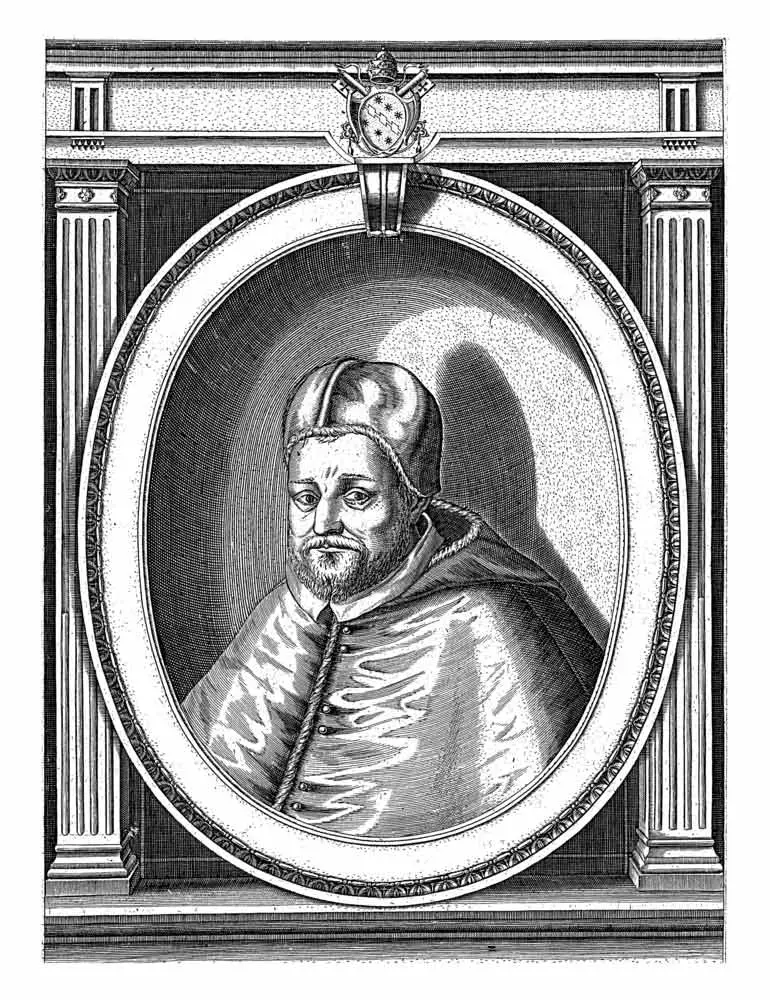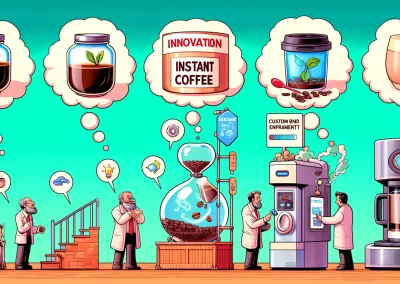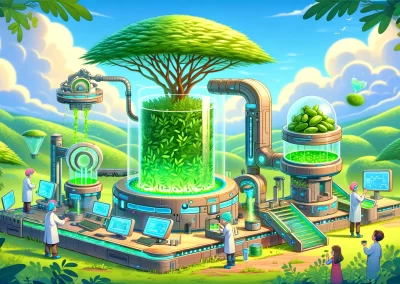A lot of us needs coffee to start the day, but have you ever wondered where did coffee come from? Who discovered it? How did they discover coffee? How did they come up with this amazing drink that can jumpstart our day? Get ready because will take on a journey on how, where, and who discovered coffee.
How Was Coffee Discovered? – Kaldi and the monk
Some time in 700 AD, Kaldi, a goat herder in Ethiopia, saw his goats in a strange behavior. The goats seemed to be dancing, which is in any timeline, not normal. After investigating, he discovered that his goats were eating red berries and thought that this is the cause of their strange behavior.
After this, there have been a lot of stories, some say that Kaldi shared the red berries with a monk, who was happy to find something that will keep him energized and awake as he prays all night. Some say that after Kaldi shared the beans, the monk threw them into the fire where it produced a wonderful aroma, and that became the first roasted coffee. After this, the beans of the red berries were harvested, ground and boiled, and came out as the coffee we know.
Coffee invading the world
Middle East
No one can prove the story of Kaldi, but one thing is for sure, coffee originated from Ethiopia, and we know where it traveled next. Coffee made its way across the Red Sea and into Yemen around the 15th century when it arrived at a port called Mocha. Due to the growing popularity of coffee and the arrival of shipments from the port, coffee became synonymous with Mocha port.
In Yemen, coffee was grown, and it became well known in Persia, Turkey and, Egypt. It became “wine of Araby”, and soon, coffee houses started to operate which are called, “Schools of the Wise” around Arabia as coffee becomes more popular. These places became the center of social activity where people go to share and hear information.
However, coffee didn’t become popular without experiencing its own persecution because of its stimulating effect. The court of Mecca banned coffee, soon, riots broke out until coffee ban was lifted.
Europe And Asia
Arabia did not let anyone grow their own coffee, and if a certain country wanted coffee beans, they need to purchase it from Yemen, and authorities made sure nobody can take fertile beans out of their control. Baba Budan, a Sufi saint from India that was on a pilgrimage to Mecca in 1670, smuggled some fertile beans and started cultivating and growing coffee which started a large scale of coffee farming in Southern India, which until today produces large amount of coffee.
Late 1600s, the Dutch also started growing their coffee that started from a smuggled coffee plant from Yemen that was not successful at first due to their weather.
In 1704, seedling were planted in Indonesia, that were later on called Java.
Europe
In 1570, coffee arrived in Venice and just like in other countries, coffee became popular in no time. The Pope Clement VIII even decided and declared that coffee is a satanic drink. However, the Pope can’t resist coffee and soon baptized it and declared it as a Christian drink.
How did coffee came to Rome
Coffee has a long history in the peninsula. Indeed, coffee has been grown in the region for centuries and was even exported to Europe by the early 1500s. However, it wasn’t until the 1600s that coffee became popular in Europe, and it wasn’t until the 1800s that coffeehouses began to proliferate across the continent. Today, coffee is one of the most popular beverages in the world, and its popularity shows no signs of waning.
The first recorded instance of coffee arriving in Italy was around 1570, in the port city of Venice. It is believed to have come to Venice via trade routes from Turkey. This arrival of coffee in Italy marks the beginning of the popularity of coffee drinking throughout Europe.
At first, coffee was only available through pharmacies, but in no time, it became popular and everybody wants to taste it.
To the dismay of many priests and politicians in Rome, the object made it to the city despite its Islamic origins.
The Pope’s ruling was based on the fact that coffee beans were often used as currency, and he didn’t want people to be hoarding them.
Appealing to their ruler, Pope Clement VIII (1536–1605), they declared coffee the “Satan’s drink” and asked for it to be banned altogether. The Pope ruled in favor of the ban, citing the fact that coffee beans were often used as currency, and he didn’t want people to be hoarding them.
According to stories, the Pope tried the coffee first and was impressed by its taste and flavor that he declined the request. And with the Pope’s approval, coffee became unstoppable.
Satan’s Drink
Coffee was so popular during the Ottoman Empire in the 1600s that Sultan Murad IV tried to make it illegal by decapitating anyone caught drinking it. It was so addicting that even with a threat of losing your head didn’t stop coffee drinkers.
The coffee obsession of Muslims was the Catholic’s introduction to the drink and as it was introduced to the streets of Rome and Venice, the people pressure the Catholic pope to denounce coffee because of its association with Islam and the addiction it brings to its drinkers.
The Pope was kind enough to test the drink first before making any judgement, and upon tasting “Satan’s drink”, the Pope was amazed and said that coffee was a delicious drink, and it would be a pity to exclude and ban it.
The Blessed Beans
Pope Clement blessed coffee beans and suggested that it was a better alternative to alcohol. With his blessing, Catholic rejoiced around the world and enjoyed coffee as much as they want. This story remains a possible legend but is one of the most pleasant Papal tales from Rome. So next time you drink your coffee, say a little thank-you prayer to Pope Clement VIII.
Conclusion
Coffee has a long, long history. From its discovery to how it spread through Europe and Asia. One thing is for sure, anywhere coffee goes, it becomes a beloved drink.
When coffee came to Italy, people didn’t know how to accept its addicting flavor. They’re so enamored by it by also threatened, and they requested it to be illegal and banned all together. But thanks to Pope Clement VIII who blessed coffee, Catholics from all over the world can enjoy it. But we know, that even without the Pope’s approval that time, coffee will still be blessed and will still become a staple drink all over the world.









